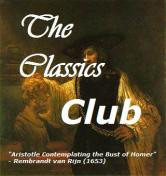The Assault by Harry Mulisch was a great read, brief and straightforward, and very effective. Set in the Netherlands, it starts with a horrendous event during World War II.
Near the end of the war, when many countries in Europe had been liberated, the Netherlands was still occupied. A policeman in the city of Haarlem, who was collaborating with the Germans, was shot down in a small neighborhood. Reprisals are taken and many people are killed, including children. This novel takes that one event and shows how it affected the people who were involved. It continues up to 1980.
The focus of the novel is on Anton Steenwijk, who is only 12 years old when the event happens. It follows him through important times in his life, each of which trigger memories and emotions in him.
The story is based on a real event that happened during the war, although I have no idea how closely it follows the actual event.
This historical novel about World War II was very different from others I have read. I found the writing style mesmerizing. Along the way there are revelations and surprises both for Anton and the reader. I especially like that the story focuses on a child and how he carries the trauma of the war with him throughout his life.
This book was recommended to me by Patricia Abbott at Pattinase. Also see Sam Sattler's review at Book Chase.
Publisher: Pantheon, 2016 (orig. pub. 1982)
Translated from the Dutch by Claire Nicolas White
Length: 185 pages
Format: Trade Paperback
Setting: Netherlands, World War II
Genre: Historical Fiction
Source: A recent purchase.










